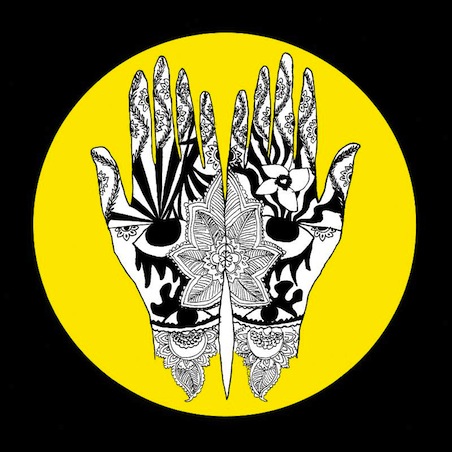With their own record label (Woodsist) and their own music festival (also Woodsist), Woods can claim to be in a select group of triple threats, joined by Wilco and, uh, probably some others that I can’t think of. But, despite this elite status, Woods are very much music of the underground, with little to no commercial appeal for their band, the festival taking place in the isolated California town of Big Sur, and the label recently losing their biggest act, Real Estate. And though nothing about their endeavors is likely to change with the release of yet another consistent, and at times exceptional, album, entitled Sun And Shade, something about the breezy and comfortable songs that Woods writes makes it seem that lofty expectations are not part of the band’s game-plan.
If you are at all familiar with Woods’ previous efforts, notably Songs Of Shame and At Echo Lake, then you are half-prepared for Sun And Shade. The songs of Jeremy Earl, though each distinct, tend to orbit the same psych-folk gravitational force that won’t let him drift too far away. But, it is not the method that makes Woods special, but the quality of the songs at their heart. From album to album, Earl has an uncanny way to make folk music sound like he invented it. “Be All Be Easy” joins “Rain On” and “Time Fading Lines” as a song to instantly fall in love with, steeped in sadness, but optimistic enough to convey that the emotional storm is coming to an end, that the clouds are parting after a significant downpour. Woods are at their strongest when they are mixing emotions, never finding themselves too heavy-handed and always loosening their grip around your throat.
Strong numbers abound throughout the rest of the album. Opener “Pushing Onlys” finds Woods at their most expansive, providing a rocky bed for Earl to lay his piercing vocals and eventually dissolving into a trippy wrestling match between guitar leads and tape effects. “Who Do I Think I Am” is more straight forward, with Earl coming in with a breathy blanket of a verse and reflective lyrics that, though simple, are so planted in sincere and universal soil that it becomes hard not to be affected by it.
But, while the material that continues with their previous direction is characteristically strong, it is when the band tries to stretch themselves that they see problems. Two extended minimalist psych-folk jam sessions, “Out Of The Eye” and “Sol y Sombra,” combine for nearly 17 minutes of distraction from the direct and immediate melodic numbers. And while I applaud the band’s desire to take chances, the fact is that one of these would have been enough, and as is, it feels like too much of a left turn of the rather focused album. “White Out,” near the end of the album, offers a good middle ground for Sun And Shade‘s two tendencies, building on bongo beats, guitar noodling, haunting backing vocals, and tape textures to form a coherent, yet still experimental, song. The freak-out at the end becomes the result of a natural progression, involving the listeners rather than alienating them, and drifting perfectly into one of the album’s most beautiful moments with “Say Goodbye.” The close of the album, feeling like a parting wave and a hug, concludes the record with the same amount of care that is shown throughout, giving both sides of numerous coins, both emotionally and in the song structure. In the end, Sun And Shade proves far more complex than the label of psych-folk would indicate, to the point that its small flaws are easily forgivable.

